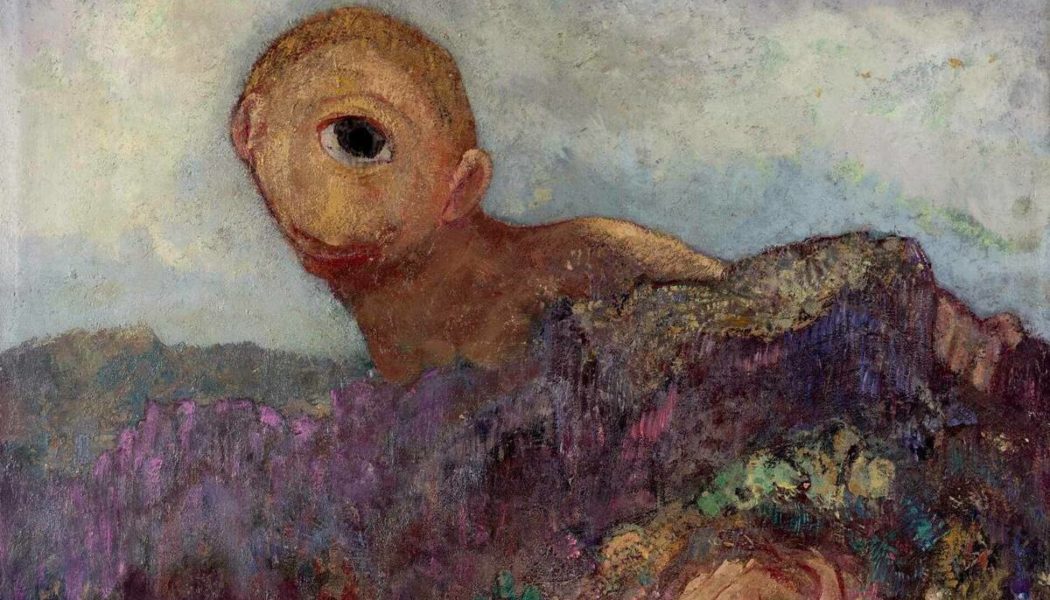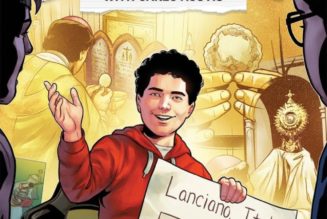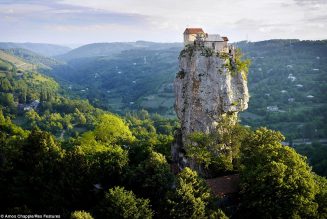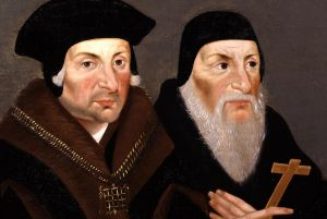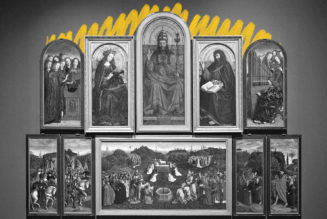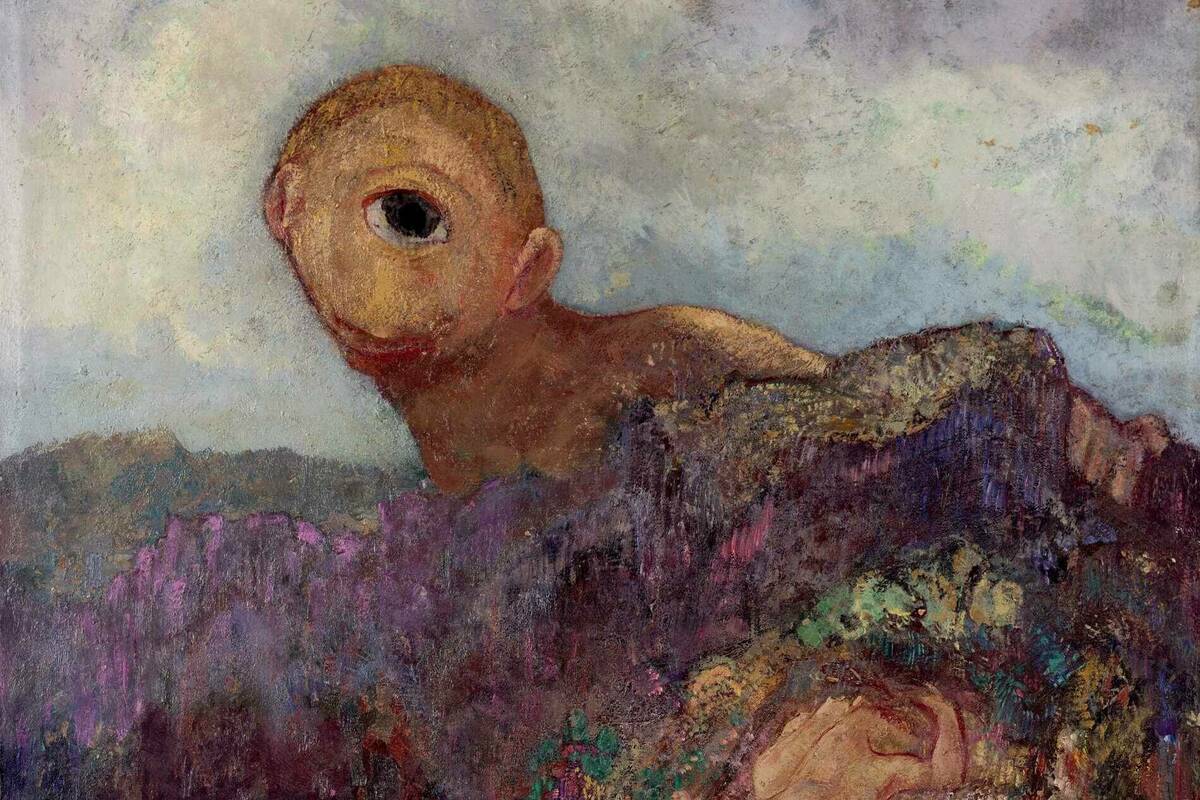
From being a limited concern of Neo-Scholastics in the mid-twentieth century, the alleged heterodoxy of Henri de Lubac (1896–1991) and other ressourcement theologians has become a rallying cry of self-proclaimed traditionalists in the twenty-first. Despite his acceptance by the hierarchical Church, aspects of the French cardinal’s life and thought remain misunderstood by his critics as well as by many seeking to claim him as an ally. The following seven myths are as widespread as they are egregious.
De Lubac and His Ideas on Nature and Grace Were Condemned in Humani Generis
In the 1950 encyclical, Humani generis, Pope Pius XII pronounced, “Others destroy the gratuity of the supernatural order, since God, they say, cannot create intellectual beings without ordering and calling them to the beatific vision” (§26). At the time of the encyclical’s release, some, including de Lubac’s Jesuit superiors, believed de Lubac’s theology of nature and grace to be implicated in it, since de Lubac posits that the human being is called to the beatific vision. Today, that impression continues. However, de Lubac claims otherwise, and his evidence is convincing.[1]
In a late-life interview with Angelo Cardinal Scola, when asked about the paragraph in HG, de Lubac asserts, “Far from containing any rebuke . . . the passage borrows a sentence from me to express the true doctrine.”[2] The allegedly borrowed sentence is from de Lubac’s 1949 essay, “The Mystery of the Supernatural.”[3] There, the year before the promulgation of HG, de Lubac writes, “[I]f God had wanted . . . he could have not called this being that he gave us to see him.” In other words, God could have created intellectual beings without calling them to the beatific vision—the very point Pius XII makes the following year.
De Lubac’s overarching thesis is that God does in fact call human beings to the beatific vision, and that this call is constitutive of human nature. Nevertheless, God was not required to call us so; and de Lubac clarifies that even before the promulgation of the encyclical. De Lubac repeats his position on God’s freedom in 1965.[4] While some argue that the 1965 book was an attempt to correct his earlier position in light of HG, it is clear that de Lubac had anticipated HG already in 1949. Thus, the encyclical could not have been condemning his position.
De Lubac Was Silenced by the Church in the Aftermath of Humani Generis
De Lubac’s detractors, as well as surprising numbers of his defenders, claim that he was silenced by the Church due to his alleged condemnation in HG. In reality, two months before the promulgation of HG, de Lubac was asked by his Jesuit superiors to step down from teaching at the Lyon-Fourvière school of theology.[5] This directive was not from the Church hierarchy but from his religious order. He recalls that neither Pope Pius XII “nor any other legitimate authority of the Church ever took any action against me.”[6]
According to de Lubac, the Jesuits never articulated a reason for his dismissal.[7] Presumably, it was related to an article by Réginald Garrigou-Lagrange that accused faculty at the Lyon-Fourvière school of doing new theology—an accusation de Lubac vehemently denies (see myth #7). After HG was released, his superiors further forbade him from publishing on Catholic theology and pulled his books from Jesuit libraries due to their fear that he was implicated in the encyclical.[8]
It was a member of the hierarchy, Cardinal Gerlier, who advocated for de Lubac to the Jesuits.[9] Gerlier went so far as to make de Lubac his theological advisor in 1951 to rehabilitate his reputation.[10] Because of Gerlier’s intervention, in 1953, the Jesuits permitted de Lubac to teach again, although not on Catholic theological matters, and not regularly.[11] He was also allowed to publish Méditation sur l’Eglise in the same year.
In 1958, de Lubac sent several of his books to Pope Pius XII, including Sur les Chemins de Dieu, Méditation sur l’Eglise, and his works on Buddhism. Pius XII received them enthusiastically. In a letter to de Lubac, the Pope’s confessor, Father Augustin Bea writes, “The Holy Father asked me to communicate his great gratitude and to tell you that he expects much more from the talents the Lord has given you for the good of the Church. He sends you wholeheartedly his blessing for your person, particularly for your health, and for all your works, and he encourages you to continue with much confidence your scientific activity from which much fruit is promised for the Church.”[12]
In 1960, Pope John XXIII appointed de Lubac to the theological preparatory commission for Vatican II, where he went on to serve as a peritus to several bishops, including Karol Wojtyła. Wojtyła became a close friend and in 1983, as Pope John Paul II, appointed de Lubac a cardinal.
De Lubac Believes That Nature Is Naturally Graced (Or, That Grace Belongs to the Structure of Human Nature as Such)
As Susan K. Wood puts it, the question at issue is “whether grace can be considered as a structure of creation.”[13] De Lubac’s answer is a resounding no: grace is not part of the structure of creation nor the structure of human nature as such. De Lubac describes nature and grace as two gifts, with the second gift of grace being “completely distinct” from “the first gift of creation.”[14] While the call to the beatific vision is inscribed in human nature, such that the heart is restless for God, the fulfillment of that call is not contained within nature, nor are the means by which to achieve it. Nature’s structure is paradoxical: it can only receive its final end through Another, who bestows it freely.
De Lubac stresses that a supernatural end does not make human nature supernatural, nor does it fuse nature with grace. He declares,
The fact that the nature of spiritual being, as it actually exists, is not conceived as an order destined to close in finally upon itself, but in a sense open to an inevitably supernatural end, does not mean that it already has in itself, or as part of its basis, the smallest positively supernatural element. It does not mean that this nature, “as nature, and by nature,” is elevated.[15]
On de Lubac’s paradigm, nature bears within itself a readiness to receive grace without actually being graced. Grace is an entirely new reality in relation to human nature; nature longs for that which it does not already possess.
Accordingly, de Lubac describes the passage from nature to the supernatural thus:
It is not a question of passing over into a new degree in the same order . . . It is the irruption of a wholly different principle. The sudden opening of a kind of fourth dimension, without proportion of any kind to all the progress provided in natural dimensions. A “new creation,” the creation of a “new heart.”[16]
The supernatural answers nature’s desire without being an outgrowth of nature.
The controversy over de Lubac’s position stems from the Neo-Scholastic endorsement of Aristotle’s dictum that the end of a nature corresponds to what a thing is and is within that nature’s ability to achieve. Thus, the end of an elephant is to be a good elephant, and elephants can achieve that end without supernatural aid. On this basis, it is reasoned that to claim that a human nature has a supernatural end, as de Lubac does, would be to assert that human nature is supernatural. Therefore, those within the Aristotelian paradigm conclude that de Lubac conceives of human nature as already graced.
While de Lubac accepts Aristotle’s axiom in regard to other natures, he rejects its application to human nature. Human nature is a special case insofar as it is spiritual nature and image of God. Nature’s status as image with a call to participate in God’s likeness was unknown to Aristotle. Yet, we, who do have the benefit of revelation, ought to incorporate it into our anthropology.
On the basis of the data of revelation, de Lubac argues that nature does not have its ultimate end in itself but in God. Nevertheless, nature’s end in God does not render nature supernatural. Nature’s structure is paradoxical: it longs for that which can only be given as a free gift.
De Lubac Denies a Natural End of Human Nature
Many of De Lubac’s critics (and not a few of his would-be companions) claim that de Lubac affirms only a supernatural end of human nature, denying a natural end. De Lubac himself sometimes gives this impression, as he does when he declares, “There is only one end, and therefore I bear within me, consciously or otherwise, a ‘natural desire’ for it.”[17] Yet, when elaborating on the matter, de Lubac affirms a twofold end, natural and supernatural. He writes, “Beatitude,” the end of man, “is twofold: the first is ‘natural’ and the second is ‘supernatural.’”[18] Natural beatitude is imperfect while supernatural is perfect; yet both are ends of man.
Man’s natural end “does not need [the supernatural] for its natural completion,”[19] as natural beatitude is within human nature’s ability to achieve by its own powers. On the other hand, the attainment of man’s supernatural end is only possible through grace. He explains, “In a certain sense it is a question of man with a twofold end: one, which is proportionate to his created nature and that he can attain by himself; the other which is beyond all proportion and consists in eternal life.”[20] The supernatural end is not an outgrowth of nature nor can it be achieved by the human person’s innate powers. While de Lubac professes that the supernatural is a true end of nature as such, it is unique vis-à-vis all other ends, insofar as the human being cannot attain the supernatural on his or her own.
As Nicholas J. Healy observes, both de Lubac and his pure nature interlocutors acknowledge a natural end. The difference is the weight that each assigns to it. “De Lubac . . . stresses the incompleteness or penultimate character of “natural felicity,” whereas his interlocutors . . . emphasize that the natural end is truly a final end in its own order.”[21] De Lubac emphasizes the secondary character of the natural end, that is, the way in which natural beatitude is preparatory for sharing in God’s own life.
In de-emphasizing natural beatitude, de Lubac pushed back against the regnant naturalism and secularism of postwar France. The contemporary crisis, as he saw it, was not the denial of natural ends, but the perceived irrelevance of the supernatural to natural man and ordinary life. His one-sided emphasis on the supernatural end is clarified against that context.
De Lubac Downplays the Eucharist in Order to Emphasize the Communion of Believers.
In Corpus Mysticum (1944), de Lubac illustrates that in the early Church, sacramental and ecclesial communion were seen as linked. To the Fathers, “sacramental communion (communion in the body and blood) is always at the same time an ecclesial communion (communion within the Church, of the Church, for the Church).”[22] The Eucharist makes the Church, as the faithful become what they eat. The Eucharist “corresponds to the Church as cause to effect, as means to end, as sign to reality.”[23] While the Church produces the Eucharist through its priests, the Eucharist, in a very real sense, yields the Church, insofar as ecclesial communion is an effect of sacramental communion.
De Lubac claims that in the modern age, the link between sacramental and ecclesial communion is lost due to the influence of rationalism in theology. The focus shifted to whether the Eucharist is really the Body of Christ—body as opposed to a symbol. While de Lubac affirms that the Eucharist is the Real Presence, he thinks that the Eucharist ought to be viewed in terms of its interrelationship with the threefold (historical, sacramental, ecclesial) Body of Christ.
Unfortunately, de Lubac’s claim has been misinterpreted. Some have taken his historical study of the relationship between the Eucharist and the Church as an endorsement of a Church for which the Sacraments are unimportant and the Real Presence does not matter. Not only does that charge not apply to de Lubac, but he actually explicitly criticizes such a position. In 1972, for instance, he writes that without the Sacraments,
the liturgical celebration would become nothing more than a community of assembled persons that would give itself its own expression so that, through it, its reality would be constituted: as if the celebration originated solely from within the community and as if its only end were to allow the community to become aware of itself as such. There would be nothing more to be “given from on high.”[24]
The Body of Christ would not be so without Christ, and Christ is given to the faithful through the Eucharist. Without the sacramental Body, the ecclesial Body would not be. In no uncertain terms, de Lubac upholds the importance of the Sacraments for ecclesiology.
De Lubac Was Enthusiastic About Joachim of Fiore and Recommended His Ideas.
This myth circulates in the English-speaking world presumably because de Lubac’s two-volume work (1979, 1981) on the twelfth-century abbot, Joachim of Fiore, remains untranslated. As soon as one reads the work, however, it is clear that the myth is untrue. De Lubac does not endorse the medieval thinker, but writes on him because he believes that Joachimism is a “pressing danger.”[25]
As Patrick X. Gardner explains, Joachimism, to de Lubac, signifies an immanentism that “tends to reduce the Church to the world, the Kingdom of God to social utopias, and the supernatural to the secular sphere.”[26] It is present in Comte’s social utopia, Marx’s religion of the workers, and Hegel’s absorption of God into the world. Moreover, it is present in various forms of immanentism in the Church, influenced by Marx and Hegel.
De Lubac’s motivation for the work on Joachim was not to spread his ideas, but to warn of the pattern of his thought, which de Lubac saw as dangerously at work in the post-conciliar Church. Specifically, he sees it reflected in Edward Schillebeeckx’s idea of the Church as the “sacrament of the world”[27] and in some (not all) forms of liberation theology which flatten the distinction between sacred and secular progress. De Lubac insists that the distinction between nature and grace, as well as time and eternity, be maintained—a distinction that Joachimism undermines.
De Lubac Was Trying to Do New Theology
The term “new theology” was coined not by de Lubac—although it is often applied to him—but by Pietro Parente in 1942 to criticize the French Dominicans Marie-Dominique Chenu and Louis Charlier.[28] In 1946, Réginald Garrigou-Lagrange applied the term to the Jesuit Lyon-Fourvière school of theology, of which de Lubac was a part.[29] Thus, some presumed that the term applied to de Lubac as a Fourvière faculty member. De Lubac rejects the term. He writes:
I do not much like it when people talk of a “new theology,” referring to me; I have never used the expression, and I detest the thing. I have always sought, on the contrary, to make the Tradition of the Church known, in what it offers that is most universal and least subject to the variations of time. “New theology” is a polemical term . . . which most of the time signifies nothing, serving only to throw suspicion on the author in the mind of those who do not take a closer look at it.[30]
As he saw it, de Lubac was not inventing new theology but rediscovering the tradition. Indeed, his critique of Neo-Scholasticism, particularly its theory of pure nature, was that it was new theology—a modern advent that was unfaithful to the work of Thomas Aquinas and the Catholic tradition.
De Lubac describes the basic thrust of his theological work thus: “Without claiming to open up new avenues of thought, I have sought rather, without any antiquarianism, to make known some of the great common areas of Catholic tradition. I wanted to make it loved, to show its ever-present fruitfulness.”[31] De Lubac’s theological aim was not nouvelle théologie, but ressourcement: a return to the sources of the Catholic tradition, sources which had been abandoned in the modern era, on de Lubac’s view.
Overall, de Lubac incontrovertibly influenced the Second Vatican Council and twentieth-century theology. While some aspects of his thought require clarification, the rush to reject his ideas without a careful reading of them is unwarranted. In an era when some Catholics have come to doubt the validity of the Second Vatican Council, a hasty rejection of the thought of one of its sources risks confirming this doubt. A careful study of de Lubac’s life and work shows that he was in fact a faithful son of the Church, whose life’s mission was to make the faith known and loved.
[1] For a thorough explanation of how de Lubac’s claim is correct, see Nicholas E. Lombardo, O.P., “What God Cannot Do: Divine Power, the Gratuity of Grace, and Henri de Lubac,” Modern Theology 37, no. 1 (January 2021): 114–38.
[2] Henri de Lubac and Angelo Scola, A Theologian Speaks (Los Angeles, CA: Twin Circle Publishing, 1985), 4. De Lubac reaffirms his belief about the HG passage in Letters of Étienne Gilson to Henri de Lubac: With Commentary by Henri de Lubac (San Francisco: Ignatius Press, 1988), 99 and in Henri de Lubac, At the Service of the Church: Henri de Lubac Reflects on the Circumstances that Occasioned his Writings, trans. Anne Elizabeth Englund (San Francisco: Ignatius Press, 1993), 71.
[3] Henri de Lubac, “The Mystery of the Supernatural,” in Theology in History, trans. Anne Englund Nash (San Francisco: Ignatius Press, 1996), 281–316; originally published in Recherches de science religieuse (1949): 80–121.
[4] “God was not . . . in any way obliged to destine us for that ‘true and perfect beatitude’ which is only realized in seeing him. No kind of constraint or necessity, whether internal or external, ‘moral’ or ‘natural’—or in the terms of a modern theologian ‘juridical’ or ‘ontological’—forces the divine will.”[4] In a footnote, he continues, “[H]ow wrong it would be to say ‘God cannot create,’ and the further mistake there would be in saying ‘God cannot create beings endowed with intellect without ordering and calling them to the beatific vision’” (Henri de Lubac, The Mystery of the Supernatural, trans. Rosemary Sheed (New York: Herder and Herder, 2016), 80, n. 8).
[5] See Rudolf Voderholzer, Meet Henri de Lubac: His Life and Work, trans. Michael J. Miller (San Francisco: Ignatius Press, 2008), 70.
[6] De Lubac, A Theologian Speaks, 4.
[7] De Lubac reflects, “During the whole affair . . . I was never questioned, I never had a single conversation about the root of the matter with any authority of the Church in Rome or the Society. No one ever communicated to me any precise charge. …[N]o one ever asked me for anything that would resemble a ‘retraction,’ explanation or particular submission” (At the Service of the Church, 78).
[10] Voderholzer, Meet Henri de Lubac, 75.
[12] De Lubac, At the Service of the Church, 90.
[13] Susan K. Wood, “The Nature-Grace Problematic within Henri de Lubac’s Christological Paradox,” Communio 19, no. 3 (Fall 1992): 397.
[14] De Lubac, “Mystery of the Supernatural,” 299.
[16] De Lubac, Drama of Atheist Humanism (San Francisco, Ignatius Press, 1995), 466, italics mine. French original published in 1944.
[17] De Lubac, The Mystery of the Supernatural, 56.
[18] De Lubac, “Duplex Hominis Beatitudo,” Communio 35 (Winter 2008): 612; originally published under the same title in Recherches de science religieuse 35 (1948): 290–99.
[19] De Lubac, Mystery of the Supernatural, 94.
[20] De Lubac, Augustinianism and Modern Theology, trans. Lancelot Sheppard (New York: Crossroad Publishing Company, 2000), 130. De Lubac is explaining Soto’s position, but as if it were his own. French original published in 1965.
[21] Nicholas J. Healy, “Henri de Lubac on Nature and Grace: A Note on Some Recent Contributions to the Debate,” Communio 35 (Winter 2008): 551.
[22] Henri de Lubac, Corpus Mysticum: The Eucharist and the Church in the Middle Ages, trans. Gemma Simmonds, Richard Price, and Christopher Stephens (Notre Dame, IN: University of Notre Dame Press, 2007), 21. French original published in 1944.
[24] Henri de Lubac, “Sanctorum Communio” in Theological Fragments, trans. Rebecca Howell Balisnki (San Francisco: Ignatius Press, 1989), 28. Original essay published in 1972.
[25] De Lubac, At the Service of the Church, 156.
[26] Patrick X. Gardner, “Modern Pentecost: Henri de Lubac on Atheism and the Spiritual Posterity of Joachim of Fiore (Ph.D. Diss., University of Notre Dame, 2015), 3.
[27] Edward Henri Schillebeeckx, Approches théologiques (Brussels and Paris: Editions du C.E.P., 1967), vol. 3, ch. 2, sec. 1, pt. 3: “L’Eglise sacrament du monde.”
[28] Pietro Parente, “Nuove tendenze teologiche,” L’Osservatore Romano 9-10, February 1942, 1.
[29] Réginald Garrigou-Lagrange, “La nouvelle théologie où va-t-elle?” Angelicum 23 (1946): 126–24.
[30] De Lubac, At the Service of the Church, 361.
[31] Henri de Lubac, “Epilogue to Part Two: The Texture of a Work and its Unity” in Theology in History, trans. Anne Englund Nash (San Francisco: Ignatius Press, 1996), 599. See also de Lubac, At the Service of the Church, 143.
